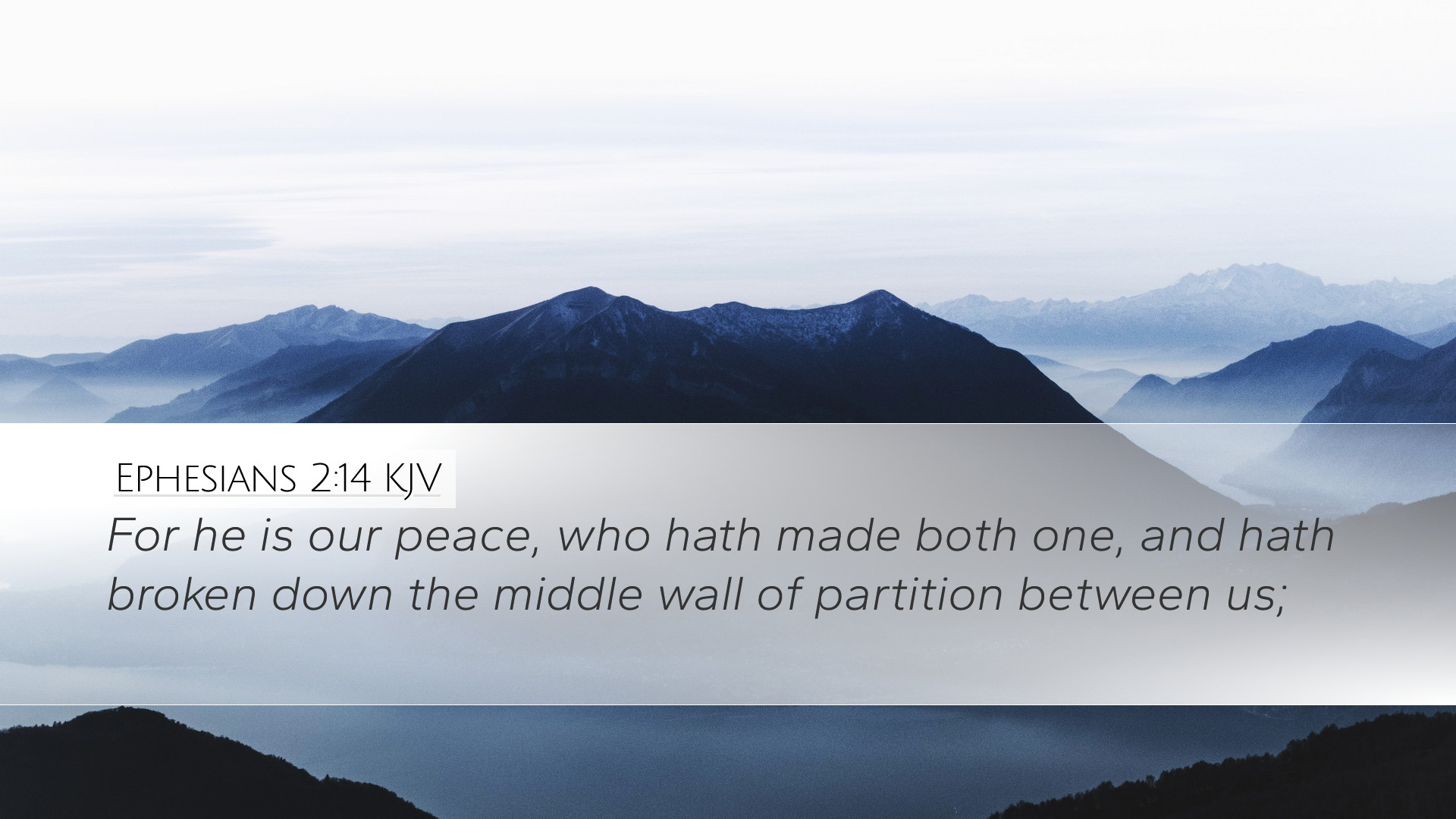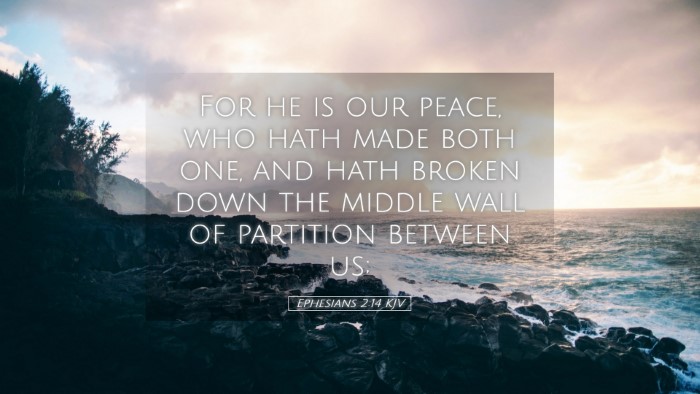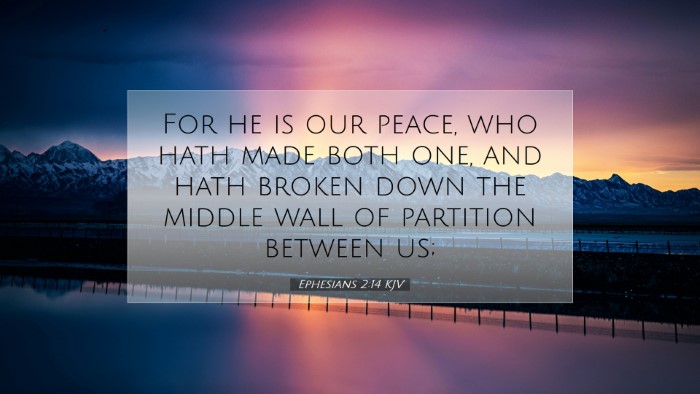Ephesians 2:14 - Bible Commentary Summary
Text of Ephesians 2:14 (KJV): "For he is our peace, who hath made both one, and hath broken down the middle wall of partition between us."
Introduction
The letter to the Ephesians, attributed to the Apostle Paul, intricately discusses themes of unity, reconciliation, and the nature of Christ's peace. Verse 14 succinctly encapsulates these themes, revealing Christ as the unifying force between diverse groups—specifically Jews and Gentiles.
Insights from Matthew Henry
Matthew Henry emphasizes that this verse underscores the role of Christ as the mediator of peace. He interprets the "middle wall of partition" to symbolize the rigid barriers established by the Mosaic Law. Through the sacrifice of Christ, these divisions are dismantled, enabling a new covenant community.
- Christ as Our Peace: Henry is clear that peace is not merely the absence of conflict but a profound state of reconciliation that stems from Christ’s work on the cross.
- The Unified Body: He notes that in Christ, believers from different backgrounds can be integrated into one body, enjoying equality and fellowship.
- Historical Context: Henry elaborates on the historical animosity between Jews and Gentiles, highlighting that the gospel transcends these divides.
Insights from Albert Barnes
Albert Barnes' commentary adds depth by further expounding upon the "middle wall of partition." Barnes identifies this barrier as both a literal and figurative construct that separated Jews from Gentiles. He emphasizes several key points:
- The Significance of Breaking the Wall: The phrase conveys a radical shift in spiritual access and inclusion, where former enemies are reconciled through Christ’s sacrifice.
- The Role of the Church: Barnes makes a case for the church as a manifestation of this unity, where believers are called to live out this reconciled identity.
- Peace through Christ: He insists that true peace among believers can only be realized through acknowledging Christ’s central role in redemption.
Insights from Adam Clarke
Adam Clarke’s insights focus on the theological implications of Christ being our peace. He asserts that this peace encompasses not just personal salvation but communal harmony as well.
- The Nature of Christ's Peace: Clarke points out that this peace is comprehensive; it brings tranquility to both personal hearts and societal structures.
- Unity in Diversity: He beautifully articulates how the gospel not only eradicates enmity but also celebrates diversity within the unity of the body of Christ.
- Spiritual and Temporal Realms: Clarke reflects on how Christ’s peace affects both spiritual matters and social relations, advocating for a holistic approach to peace-making.
Theological Reflections
This verse serves as a foundational text for understanding Christian reconciliation. The implications of Christ being our peace are profound and far-reaching, touching on various aspects of faith and community life.
- Reconciliation with God: The first aspect of peace is the reconciliation between humanity and God, initiated through the cross.
- Reconciliation among Humanity: As people are reconciled to God, they are also called to reconcile with one another, embodying the love and forgiveness exemplified by Christ.
- The Role of the Holy Spirit: The Spirit is instrumental in fostering this peace, empowering believers to live out their reconciled identities.
Practical Application
For pastors, students, theologians, and Bible scholars, Ephesians 2:14 not only provides theological insights but also practical applications for ministry and daily living.
- Preaching Peace: Emphasize the message of peace in sermons, encouraging congregations to understand and embrace their identity in Christ.
- Building Community: Foster environments of inclusivity within church settings that mirror the unity of the body of Christ.
- Conflict Resolution: Utilize this verse as a framework for addressing conflict; remind congregants that healing is rooted in Christ.
Conclusion
In Ephesians 2:14, we find a rich tapestry of theological depth and practical significance. As the body of Christ, may we embody the peace that Christ has provided, actively working to break down the walls that divide us and to promote reconciliation, unity, and love in our communities.


